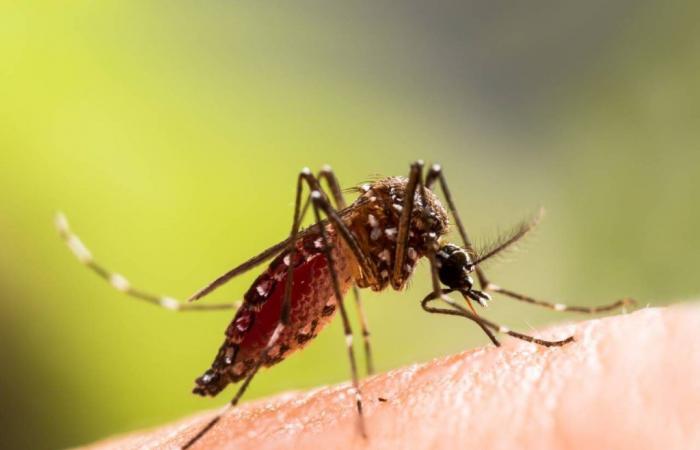According to an article published in the newspaper The Guardian, Mosquito-borne diseases are spreading across the world and, in particular, in Europe due, according to experts, to the climate crisis.
Global warming has provided these insects with ideal conditions (such as warmer temperatures and increased relative humidity) to its spread, which has increased in the last 80 years.
Rachel Lowe, leader of the global health resilience group at the Barcelona Supercomputing Center in Spain, warned that, in the coming decades, outbreaks of mosquito-borne diseases may spread to currently unaffected areas from northern Europe, Asia, North America and Australia.
Rachel Lowe – Global Health Resilience Group Leader at the Barcelona Supercomputing Center.
The researcher warns that the world must be prepared for a sharp increase in diseases such as dengue and malaria.
The Asian tiger mosquito
Aedes albopictusthe transmitter of dengue fever found mainly in tropical and subtropical regionsas negative temperatures at night kill the insect’s larvae and eggs.

However, the Longer warm seasons and less frequent frosts have made dengue fever the fastest-spreading mosquito-borne viral disease in the world. and which is gaining ground in Europe.
It has already established itself in 13 European countries since 2023 such as Italy, France, Spain, Malta, Monaco, San Marino, Gibraltar, Liechtenstein, Switzerland, Germany, Austria, Greece and Portugal.
However, this insect is thriving, the number of dengue cases reported to the World Health Organization has increased eightfold in the last two decades, from 500,000 in 2000 to over 5 million in 2019.
Climate collapse will favor the spread of the virus
According to researchers, climate collapse will increase this spread, as droughts and floods associated with climate change may lead to greater transmission of the virusas stored water provides more breeding sites for mosquitoes.
Rachel Lowe
Lowe further states that since climate change seems so difficult to combat, an increase in the number of cases and, possibly, deaths from diseases such as dengue and malaria is expected across continental Europe. It is therefore important to anticipate outbreaks and intervene early to prevent diseases from emerging in the first place.
Rising temperatures in Europe could make diseases such as dengue endemic

Efforts should focus on strengthening surveillance through early warning and response systems similar to those in other parts of the world, so that finite resources are more effectively channeled to areas of greatest riskwith the aim of controlling and preventing disease outbreaks and saving lives.
According to Sabiha Essack, director of the antimicrobial resistance unit at the University of KwaZulu-Natal, in South Africa, climate degradation is also increasing the threat of antimicrobial resistanceas climate change compromises the ecological and environmental integrity of living systems and allows pathogens to increasingly cause diseases.






